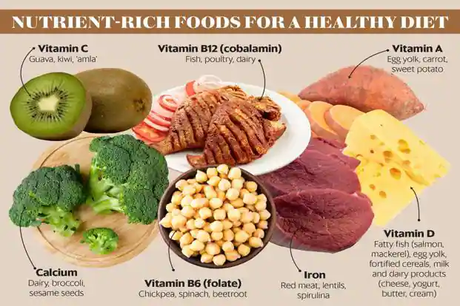As a runner, you're likely aware of the importance of macronutrients such as carbohydrates, proteins, and fats in your diet. However, many runners overlook the importance of micronutrients.
Micronutrients, including vitamins and minerals, play a crucial role in maintaining optimal health and performance. In this article, we'll explore the importance of micronutrients for runners and how to ensure you're getting enough of them in your diet.
First, let's define what we mean by micronutrients. Micronutrients are essential vitamins and minerals that our bodies need in small amounts to function properly.
Unlike macronutrients, which provide energy and are needed in large quantities, micronutrients are needed in much smaller quantities. Examples of micronutrients include vitamins A, B, C, D, and E, as well as minerals like iron, calcium, and zinc.

So, why are micronutrients so important for runners? Here are a few key ways that micronutrients support running performance and recovery:
- Vitamin C: This powerful antioxidant helps to reduce inflammation and muscle damage caused by intense exercise. It also helps to boost collagen production, which is essential for maintaining healthy joints and tendons.
- Vitamin D: Often referred to as the "sunshine vitamin," vitamin D helps to regulate calcium and phosphorus levels in the body, which are essential for healthy bone density. This is especially important for runners, as the repetitive stress of running can put a lot of pressure on the bones.
- Iron: Iron is essential for carrying oxygen to the muscles, which is crucial for energy production and endurance. Iron deficiency, known as anemia, can lead to fatigue, weakness, and decreased performance.
- Calcium: In addition to supporting bone health, calcium is also important for muscle function. It helps to regulate muscle contractions and is essential for maintaining healthy nerve function.
- Zinc: Zinc is important for the immune system and helps to promote wound healing and repair. It also plays a role in protein synthesis, which is important for muscle growth and recovery.
Now that we've covered why micronutrients are important for runners, let's talk about how to ensure you're getting enough of them in your diet. Here are a few tips:
Eat a varied diet: The best way to ensure you're getting enough micronutrients is to eat a varied diet that includes plenty of fruits and vegetables. These foods are rich in vitamins and minerals and should make up a significant portion of your diet.
Consider supplementation: While a healthy diet should provide all the micronutrients you need, some runners may benefit from additional supplementation. For example, runners who are training for a marathon or other endurance event may benefit from iron supplementation to prevent anemia.
However, always consult with your doctor or a dietitian before starting any supplement regimen.
Be mindful of food preparation: Some cooking methods, such as boiling or frying, can cause micronutrients to be lost from foods. Try to eat more raw fruits and vegetables and cook them with methods that preserve the micronutrients like steaming, grilling, or sautéing.
In conclusion, micronutrients play a vital role in maintaining optimal health and performance for runners. By understanding the importance of these essential vitamins and minerals and taking steps to ensure you're getting enough of them in your diet, you can support your training and recovery and reach your running goals.
